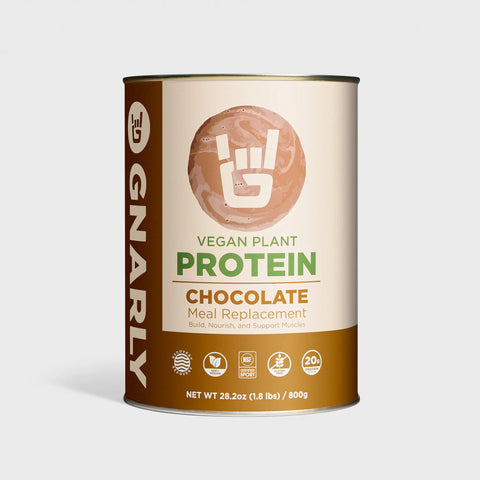This is the second article in our two-part series: Sustainability & Outdoor Sports. Please click this link to read the first article.
In part 1 of this series, the direct health risks of climate change, including increased temperatures, annual rainfall, drought, and ultraviolet radiation's impact on health, were discussed as they relate to your sports. One thing is for sure: Human activities have the most impact on the speed of climate change (2). Our society needs to work together to fight this battle with ourselves. Climate change is complex, yet we have choices to be made both during our daily life and within our government. It is not a matter of if changes need to be made, but whether or not we come together to make changes.
The primary culprit in global warming is an accumulation of greenhouse gases, causing a greenhouse effect in our atmosphere (6). Burning fossil fuels for transportation, electricity, and heat release greenhouse gases that collect in our atmosphere and trap heat. Heat-trapping gases, like carbon dioxide, methane, and nitrous oxide, will stick around for long, impacting generations of people (6). Trapped heat has led to changes in our climate and weather patterns, causing great concern for Earth and humanity. It's a positive-feedback loop with our behaviors. We burn fossil fuels that increase our planet's heat. Increases in our annual temperatures decrease biodiversity. Ecosystems typically absorb carbon dioxide to create oxygen for living creatures, including humans. Higher temps and extreme weather lead to fewer trees and plants that benefit us, causing more gas accumulation and further temperature increases (4, 6). We need to break this cycle, but how?

Big Business and Big Footprint
Since nearly half of our emissions come from collective enterprises, society needs to prioritize law and policy changes (9). These industries are so focused on their revenue they have even attempted to shift our attention from corporate to individual responsibility (9, 14). A great example of this is individuals’ ‘carbon footprint.’ British Petroleum (BP) coined and promoted this idea, likely to distract us from their roles in climate change (14). Let’s just say, for a while, it worked… Suggesting earth-concerned customers’ should reduce their footprint, projects their responsibility on individuals. When people focus on their own behaviors, it undermines more effective and large-scale policy changes. There is a mismatch between what these companies say they are doing and what is happening behind the scenes (9, 14). People have the power to support and vote for law and policy changes like carbon taxing. In terms of politics, many focus on the importance of social justice and economic growth when voting; none of those issues will matter if we don’t have a healthy planet.
Less Meat, More Land
Eating less meat, especially red meat (cows), can be done immediately, which is good for your heart and the planet. Why do you ask? Nearly 40 percent of greenhouse gas sessions are due to the demand for meat (6).
Another way meat contributes to the climate crisis is through cow methane and nitrous oxide emission. Both methane and nitrous oxide are greenhouse gases that get stuck within our atmosphere (5, 12). The global demand for meat is so high that we sacrifice massive amounts of land to it, unfortunately, areas like the Amazon rainforest (10). That’s another overwhelming reality; we cut down precious forests to grow food for our food! Eating meat is not necessary for survival, yet the way Americans and other parts of the world consume it suggests otherwise (3).
Another consideration about meat consumption is that 80 percent of all antibiotics are sold to livestock farms. Injecting more and more animals will create antibiotic-resistant animal sicknesses, and humans are catching them. As COVID-19 settles down, the fact of the matter is more pandemics will arise, so make sure to keep up with your remote work skills. 75 percent of emerging diseases in humans come from meat; I'm sure you remember H1N1 swine flu and H5NI Bird Flu (7)?
A cultural and social stigma around meat consumption remains a barrier to this beneficial transition to systemic vegetarianism, or at the very least meat-eating in moderation. Attitudes like "real men eat meat" or "you can't be strong without eating meat" are detrimental to necessary changes for our home (13).
We need to continue discussing enjoying meat and animal products in moderation, shifting the norm towards sustainable diets, and changing feelings of shame to empowerment (1, 13). Once more significant groups of people decrease their meat consumption, the demand will decrease. Lower orders mean meat companies won't need so much land for raising cattle, and that land could be put to better use (like for feeding people instead of feeding our food).

Research, Reuse and Recycle Clothing
Supporting clothing and gear companies that align with your values is another way to practice sustainability. There’s no better way to promote the longevity of our outdoor playgrounds than buying ethically. Aside from supporting the right companies, the best way to “buy green” is to only buy things when absolutely necessary, or consider purchasing used. Fixing and repurposing old clothing can save you money and help the planet. Many companies use eco-friendly fabrics like hemp and recycled polyester. Patagonia is an excellent example of this; they invest in creating and using sustainable materials that perform well. Patagonia and other companies promote reusing clothing by taking used items and providing store credit to their customers (8)! More money in your pocket, with less clothing ending up in landfills.
Another company, PrAna, established the Responsible Packaging Movement (RPM), of which Gnarly Nutrition is proudly a member. The RPM aims to fight the plastic problem within the fashion industry and empower other brands and customers to do the same (15). Researching the companies you wish to buy from is an excellent way to know what your money supports. An easy way to find social- and earth-friendly companies is by looking for Certified B corps. Companies that are Certified B Corporations meet minimal standards, including demonstrating high social and environmental performance (15).
One thing is for sure, no matter how YOU choose to support the health of our planet, advocating for your beliefs is vital. Constructive conversion surrounding social action can empower like-minded people to shift their perspective and day-to-day behaviors.
The outlook for our planet and human life will continue to look uncertain until long-term changes are implemented. These are all ways to promote change in your day-to-day life and within our communities. Although the drivers of climate change may be enterprises, individuals have the power to make changes in their own life that could collectively change our planet’s outlook.
- Aaltola, E. (2021). Defensive over climate change? Climate shame as a method of moral cultivation. Journal of Agricultural and Environmental Ethics, 34(1), 1-23.
- AR4 Climate Change 2007: The Physical Science Basis. IPCC. (2007). Retrieved March 29, 2022, from https://www.ipcc.ch/report/ar4/wg1/
- Craig WJ, Mangels AR, American Dietetic Association. Position of the American Dietetic Association: vegetarian diets. J Am Diet Assoc. 2009; 109: 1266–1282. https://doi.org/10.1016/j.jada.2009.05.027 PMID: 19562864
- Dunbar, B. (2015, May 13). What is climate change? NASA. Retrieved March 29, 2022, from https://www.nasa.gov/audience/forstudents/k-4/stories/nasa-knows/what-is-climate-change-k4.html
- Eisen, M. B., & Brown, P. O. (2022). Rapid global phaseout of animal agriculture has the potential to stabilize greenhouse gas levels for 30 years and offset 68 percent of CO2 emissions this century. PLOS Climate, 1(2), e0000010.
- Environmental Protection Agency. (n.d.). Climate Change Indicators: Greenhouse Gases. EPA. Retrieved March 29, 2022, from https://www.epa.gov/climate-indicators/greenhouse-gases#:~:text=An%20increase%20in%20the%20atmospheric,atmosphere%20increased%20by%2045%20percent.
- Grace, D., Mutua, F., Ochungo, P., Kruska, R. L., Jones, K., Brierley, L., ... & Ogutu, F. (2012). Mapping of poverty and likely zoonoses hotspots.
- The Hidden Cost of Clothes. Patagonia. (n.d.). Retrieved March 29, 2022, from https://www.patagonia.com/hidden-cost-of-clothes/
- Li, M., Trencher, G., & Asuka, J. (2022). The clean energy claims of BP, Chevron, ExxonMobil and Shell: A mismatch between discourse, actions and investments. PloS one, 17(2), e0263596.
- Lazarus, O., McDermid, S., & Jacquet, J. (2021). The climate responsibilities of industrial meat and dairy producers. Climatic Change, 165(1), 1-21.
- Lusk, J. L., Blaustein-Rejto, D., Shah, S., & Tonsor, G. T. (2022). Impact of plant-based meat alternatives on cattle inventories and greenhouse gas emissions. Environmental Research Letters, 17(2), 024035.
- MacLeod MJ, Vellinga T, Opio C, Falcucci A, Tempio G, Henderson B, et al. Invited review: A position on the Global Livestock Environmental Assessment Model (GLEAM). Animal. 2018; 12: 383–397. https://doi.org/10.1017/S1751731117001847
- Rosenfeld, D. L., & Tomiyama, A. J. (2021). Gender differences in meat consumption and openness to vegetarianism. Appetite, 166, 105475.
- Solnit, R. (2021). Big oil coined ‘carbon footprints’ to blame us for their greed. Keep them on the hook. The Guardian, 23.
- Sustainable packaging: Responsible packaging movement. Sustainable Clothing. (n.d.). Retrieved March 29, 2022, from https://www.prana.com/sustainability/responsible-packaging-movement.html
- U.S. Environmental Protection Agency 2021 Inventory of U.S. greenhouse gas emissions and sinks: 1990–2019 available at: www.epa.gov/ghgemissions/inventory-us-greenhouse-gas-emissions-and-sinks-1990-2019 (Accessed June 2021)





